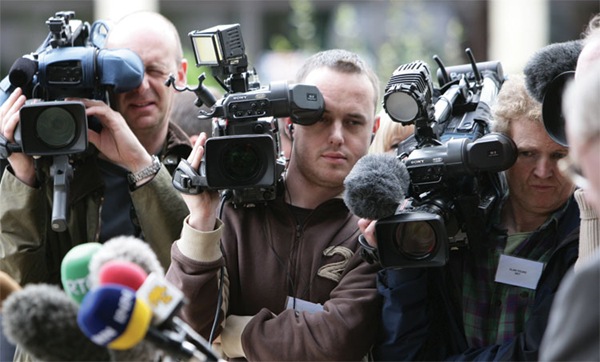A media snapshot
Downward financial trends for print and broadcast outlets do not cancel out some good news. Gary McDonald gives a survey of the state of Northern Ireland’s media after a tough year for the sector.
The last 12 months have been the most challenging for the media sector in Northern Ireland for decades. Radio, TV and newspapers have had to cope with falling advertising revenues, down by more than a third in some cases, and the rise of digital media and the increasing choice and competition that brings.
Belfast-headquartered UTV Media is a bellwether for the sector, operating across all regions, the internet and all the traditional media, except newspapers. In its own words the group suffered an “unprecedented slump in advertising” in the first half of 2009 contributing to a 30 per cent fall in profits.
UTV, the group’s TV arm, fared worst with radio doing better while new media, which includes the group’s internet operations, increased profits.
The results further underlined the strength of radio and its growing importance to UTV Media. The company was originally founded to run the North’s third channel ITV franchise. And for most of its life, TV has been the company’s dominant source of revenues and profits.
However it has diversified away from TV, acquiring and setting up radio stations in Britain, the Republic, and Northern Ireland in recent years. Radio now accounts for three quarters of profits compared to just 17 per cent from TV.
While the TV station remains a favourite with local viewers, the proliferation of rival channels has diluted advertising revenues. Cost-cutting during the year saw a number of well-known faces leave the station to be replaced by new and less well-paid cross-platform journalists.
On air
In terms of reach, radio has proved the most robust of the traditional media, according to Tony Axon, media director at advertising agency Navigator Blue.
“The local commercial radio sector has proved extremely resilient despite a huge well-funded BBC sector. This is an amazing performance,” he says. “In revenue terms the last year has been tough but the sector is in good shape to prosper when the economy recovers.”
When it comes to what people are listening to, Bauer Media-controlled Downtown and Cool FM ended the year on a high while U105, owned by UTV Media, leapfrogged Belfast-based Citybeat in the ratings.
The Northern Media Group, in which the Irish News has a stake, also continued to increase its presence with its portfolio of local stations: Five, Six, and Seven FM, as well as the Q network.
BBC Radio Ulster remains the most popular station by a distance with close to half a million weekly listeners. The next most popular is Cool with 344,000 listeners. The wide ranging presence and continued dominance of the BBC, not just in radio but across all media, has become a common cause of complaint for private sector operators.
Online
The Beeb’s free news provision poses an enormous challenge for regional newspapers in particular.
Over the last decade, newspaper publishers have poured resources into online news in the belief this medium will increasingly complement their print editions and, in time, replace them. However, advertising revenues haven’t been sufficient to cover the costs of the service while consumers have proved understandably resistant to the notion of paying for online content when the BBC is giving it away for free.
Tony Axon says it’s a problem for papers around the world and papers in Northern Ireland are no different. The issue is all the more acute given the recession and continuing declines in newspaper circulation.
“Traditional media have been investing heavily in online offerings and new sites have been emerging on a regular basis but the take up of online by the local market has been slow and the developments and site improvements we have seen have not been rewarded by new revenues,” he says.
“The challenge for local online remains the same as elsewhere and that is monetising the sites and attracting revenue.”
Newspapers won a victory of sorts in late 2008 when the BBC Trust, the body responsible for regulating the BBC, rejected plans for the corporation to launch a series of local websites carrying video content. However, the perceived threat of unfair competition remains. Many in the newspaper sector are hopeful the Tories will, if they win the next general election, rein in the BBC still further.
On the presses
In the meantime, newspapers have their hands full coping with falling sales. The North’s three indigenous dailies – the Belfast Telegraph, Irish News and News Letter – have lost readers in recent years.
The decline of the Belfast Telegraph, which as recently as 1998 had daily sales of 125,000, has been most dramatic. Latest ABC figures for the second half of 2009 put the Tele below 70,000 (66,242). Chiefs at parent company Independent News & Media haven’t been slow to ring the changes. The paper has repositioned itself from an evening broadsheet to a morning tabloid with later day editions, while a new editor arrived last year, tasked with stemming the sales decline.
The News Letter decline hasn’t been so dramatic but with daily sales at 24,555 (July-December), the paper remains a small player with an ageing readership.
The Irish News, which had held its own for most of the Noughties, has also seen its sales dip in recent years (45,667) but appears stronger than rivals thanks to a loyal readership and the paper’s popular coverage of GAA.
Amid the trials, newspapers got their biggest fillip in many years with the Iris Robinson story. In some cases, sales jumped by a third and more in those few days, proving the medium isn’t finished yet. This, says Tony Axon, gives the sector reason for optimism. “The Adams and Robinson stories have been sensational in their effect on sales, a great reminder that content sells papers.”






